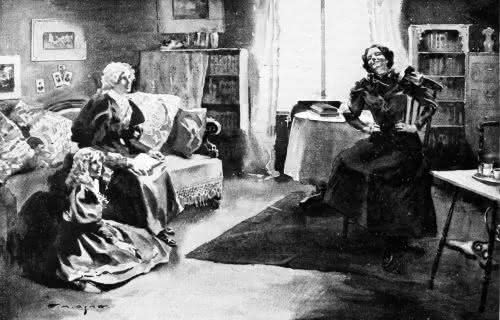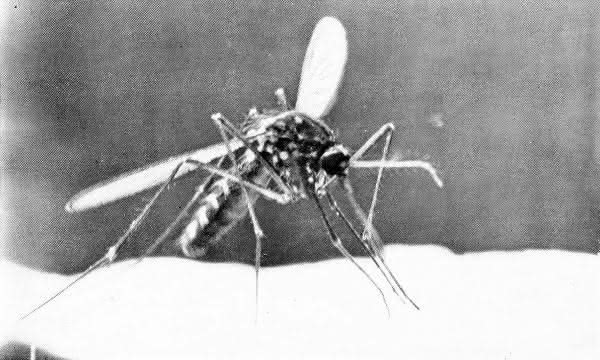I published a tanka about the mosquito in 2020. This poetic endeavor was inspired by my life-long involuntarily close relationship with the blood-sucking critters. While looking for new content, I came across a poem in the April 30, 1895 issue of Harper’s Round Table titled Lines to a Mosquito. Unlike most of the poems that I re-print from Harper’s, this poem was part of a larger short story published in the same issue. Before re-printing Lines to a Mosquito, I will offer a bit of context into the poem.
Background
Lines to a Mosquito is found in part 1 of a serialized story series called Miss Appolina’s Choice. The author of Miss Appolina’s Choice, and by extension Lines to a Mosquito, was Agnes Littleton. Miss Appolina’s Choice takes place in a New York City brownstone shortly before April 30. The dramatic personae were Joanna Reid and her elder sister, the 17-year old Millicent Reid. Millicent was described as follows:
Millicent was Joanna’s only sister, and she had beautiful golden hair, large blue eyes, and poetic tendencies.
Joanna had some suspicions that Millicent was a secret poet. When Joanna entered the scene in the instant story, Millicent had quickly tried to hide a morocco-bound book in which she was writing.
Joan was very sure that the morocco-bound book, of which she had caught a glimpse more than once when it was thrust away just as it had been this afternoon, contained poems —actual poems.
Eventually, Peggy Reid, Joanna and Millicent’s cousin who lived across the street, enters the scene. Peggy and Joanna combine forces to make Millicent share some of her poems.

The first poem that Millicent shared was Lines to a Mosquito.
Thus, the true author of Lines to a Mosquito is Agnes Littleton, but the author within the story is Millicent Reid. I will conclude my discussion of part one of the story here (you can read it in the original Harper’s – linked above). Below, I will reprint the poem as it originally appeared in Harper’s Round Table.
Poem: “Lines to a Mosquito.”
"When day is done, and darkness comes shadowing down the way, And Night with her rustling winglets blots out the garish day, We hear the song of an insect, singing its musical lay. "Oh, insect with wings that flutter! Oh, insect on murder intent, Oh, creature, we'd love thee dearly if thou wert not on bloodshed bent! And we'd bear with thy visits gladly, we e'en would be content. "Then cease thy busy prattle, and cease thy dangerous stings, Learn, learn to be meek and lamblike like other less-harmful things. Till we hail with joy thy coming, thy coming on peaceful wings!"
